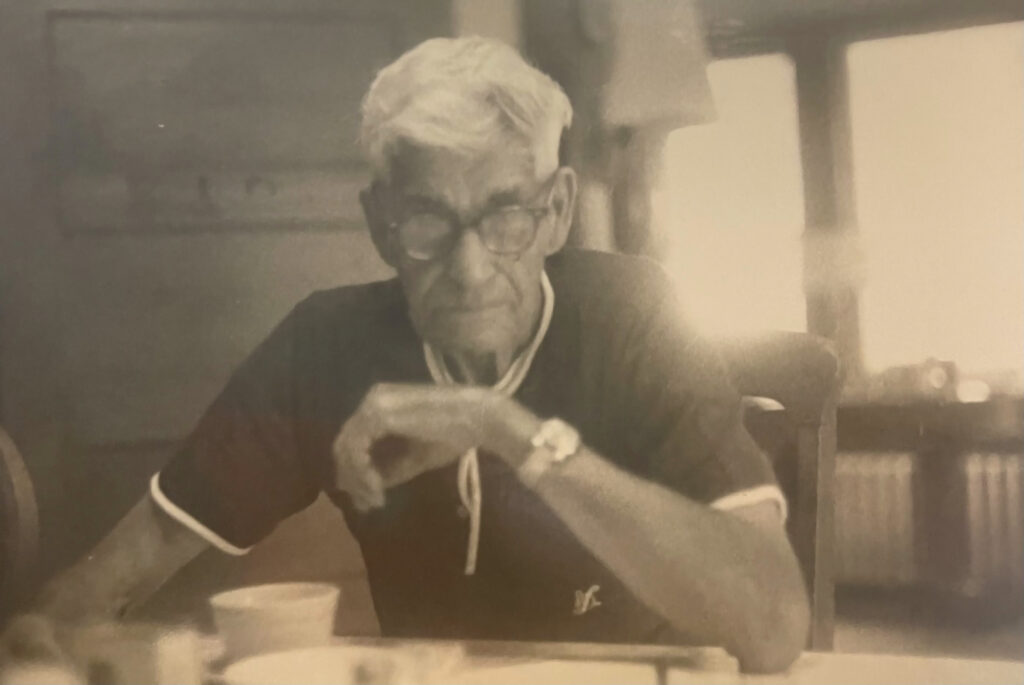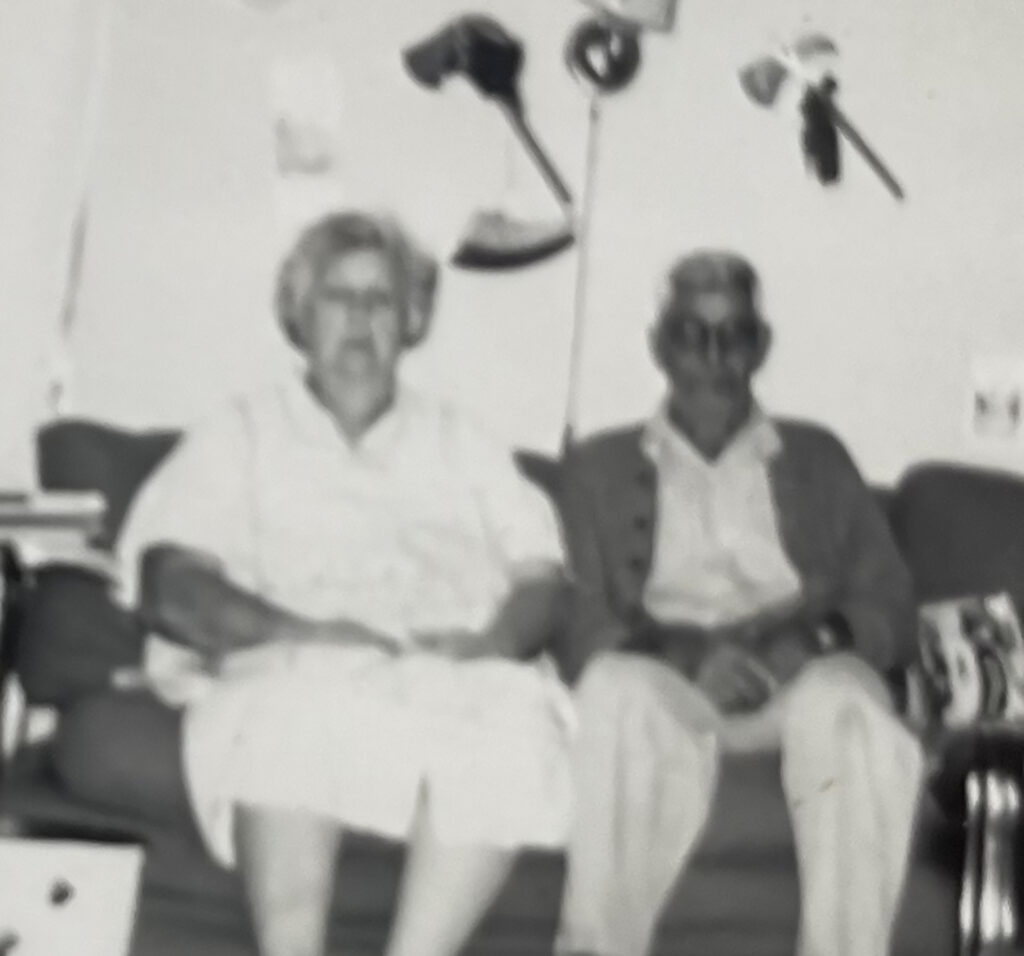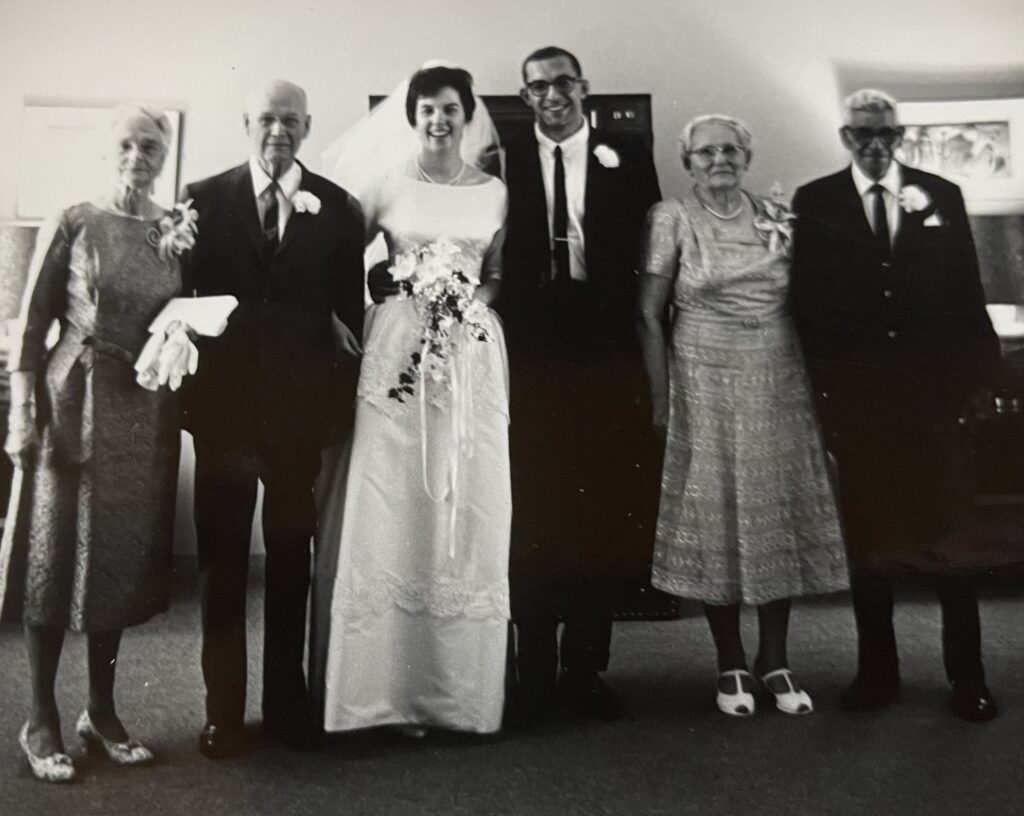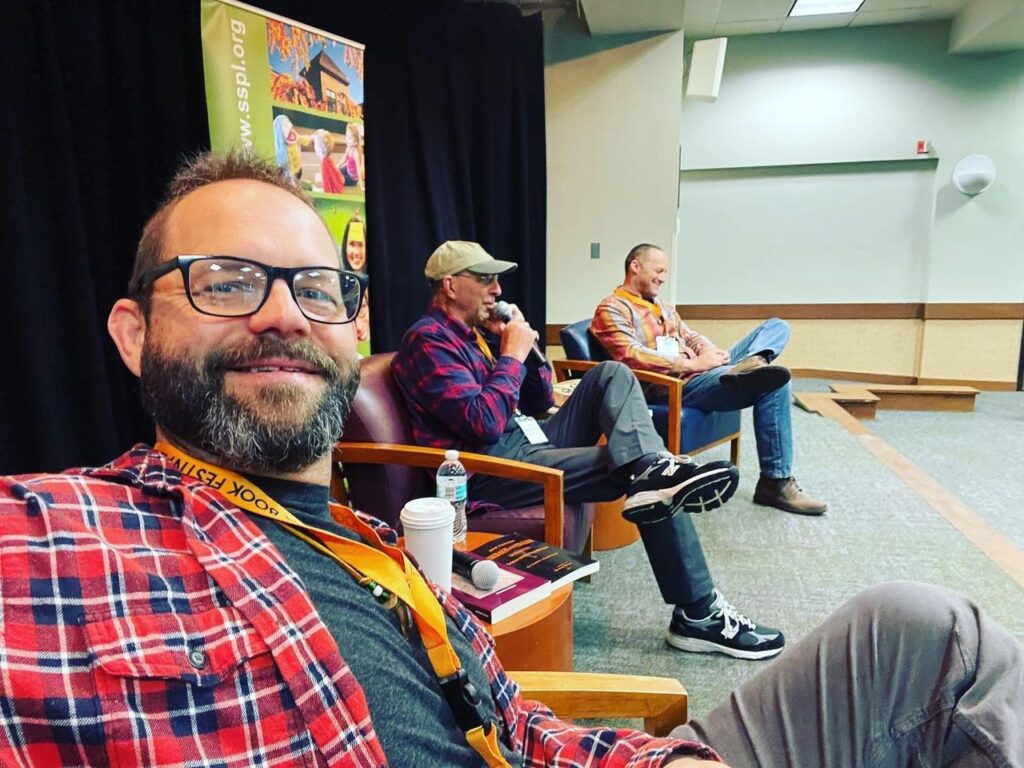I’ve included a few entries from my father Joseph Bruchac’s new Generations Blog. The posts I’ve selected share a little about the man who raised my father, and who I am so deeply inspired by and so proud to be named after — my great grandfather Jesse Bowman.

A Life Shaped by Family, Culture, and a Passion for Writing
I was born near the forests and mountains of the Adirondacks in Saratoga Springs, New York on October 16, 1942. My ancestry includes American Indian, Slovak, English, and French. I was raised by my maternal grandparents in what seemed more like a library than a house, next to our family run general store.
My grandmother, Marion Dunham Bowman was mostly English. She had an ancestor who lived in the Plimoth Plantation, and also some Indigenous ancestry from Massachusetts. She graduated from Albany Law School but never actually practiced law aside from working as a notary public, and occasionally writing wills and deeds for friends and neighbors. Her brother, my great uncle Wyllis Dunham, was the lawyer for the nearby town of Corinth. Grama Marion loved books. She was the one responsible for all the books that filled the bookcases everywhere around our house when I was a child. I have to say that her love for books influenced me to feel that same passion about literature.

On the other hand, my grandfather Jesse Bowman‘s literacy was very limited. He was of French and Abenaki Indian descent. His ancestors also included Dutch, Mohawk, and Mahican peoples. He was very dark-skinned, like his father Louis before him. In the fourth grade Grampa Jesse jumped out of the window and never went back to school, because the kids kept calling him a dirty Indian. He would gain his real learning through hands-on experience — in the woods as a logger, working as a hired field and on the town road crews, as a hired hand, and, in the second half of his life, running our family gas station and general store on Splinterville Hill. That incident in the fourth grade (and the general negative attitude toward being of Indian blood) stuck with him. It made him uncomfortable with his Indian descent. He didn’t teach me about it—at least not directly. Instead, he taught me about relating to the natural world through experience and example and with—gentle hands and patient words—showed me right from wrong as I helped out at Bowman’s Store. The closest he ever came to acknowledging his mixed ancestry was what he said to me one day when I asked him directly about it. “I’m mongrel and so are you. Us mongrels is tough.”
During our years together he would tell me stories and sing me songs he remembered from his time in the log camps. At the store, I pumped gas and washed the windows of the cars of our customers, who might give me a nickel as a tip. When we weren’t working, Grampa Jesse would take on walks in the woods of trout fishing in the nearby streams. I looked up to him as my father and he saw me as his own son.
Nurturing a Young Writer: Early Challenges, Determination, and Self-defense
I remember that it was in second grade when I began writing. How could I forget, since it led to my being beaten up by some jealous classmates? My first love was poetry. I wrote poem praising my teacher, Mrs. Monthony, and she read it to the whole class. Some of my classmates got the idea that I was trying to be the “teacher’s pet” and ambushed me after school. But even though I was bruised, I wasn’t broken. It didn’t discourage me from writing—and sometimes what I wrote were funny poems and stories that the other kids liked.
I didn’t get involved in sports until my senior year in high school. Until then, I’d been one of the smaller kids and still was getting bullied. Then, between my junior and senior years, following the death of my beloved grandmother, I had a growth spurt and ended up 6’2” and weighing 200 pounds!
Grama Marion had worried about my being in sports and discouraged me from trying for fear I might be hurt by the bigger boys. But Grampa Jesse encouraged me to give it a try now that I was big enough to compete. “Just show ‘em what you got, Sonny,” he said.
So I went out for football—and became the left guard on our team that won the regional title. Then, at the urging of my coaches, I joined the wrestling teams, ended up as the heavyweight wrestler and won the conference championship, with Grampa in the bleachers cheering me on at every match. I even became the shot putter and discus thrower on the track team. But I didn’t give up my studies, won a New York State Regents Scholarship and was accepted by Cornell University’s School of Agriculture.
Because of my love for the natural world, I enrolled as a major in wildlife conservation. However, partway through my years at Cornell, that would change. During my sophomore year I signed up for a creative writing class. By then I was the varsity heavyweight wrestler for Cornell and everyone—including the teacher of that class—knew me as an outstanding athlete. No one realized I had once been the little kid who loved poetry and got picked on in grade school. The writing teacher assumed I had signed up for the wrong class. He kept telling me that I should drop it and take something easier. But I didn’t let him discourage me. Instead, I began to eat, sleep, and breathe poetry to prove him wrong. I had been tested by bullies in second grade, and was determined to succeed. One day, to his surprise, he was impressed by something I wrote and realized I was serious. I ended up with an A in that course. In fact, that teacher, David Ray, became a lifelong friend and supporter of my work. In the blurb on the back of my first published book (Indian Mountain and other Poems, 1971), he acknowledged that I had been a wrestler but suggested I was on my way to becoming a championship writer.

That writing class and the ones that followed led to me transferring to the School of Arts and Sciences at Cornell, and spending an extra year gaining a B.A in English with a minor in Zoology. I immediately went on to attend Syracuse University on a full writing fellowship where I obtained my M.A. Then, after three years of volunteer teaching in West Africa, I earned a Ph.D. in Comparative Literature from the Union Institute of Ohio.
The three years I spent as the variety heavyweight wrestler at Cornell were also a part of what shaped me as a person. That time of physical (and mental) athletic training and competition, solidified my understanding of the importance of hard work and dedication. It was the start of my passion for and study of the martial arts.

My first wife, Carol Worthen, and I met while I was at Cornell where she was working as a lab technician. We were married between my fourth and fifth year at Cornell and the two of us volunteered together to go to Ghana with a program called Teachers for West Africa. It was the start of a three year African experience that we’d eventually share with our first son James who was born between our 2nd and 3rd years there.
Returning to the states—and to the house where I’d been raised—my grandfather Jesse was waiting for us and his first great-grandson. Our family physician, Doc Magovern, would later say to me that Grampa had literally kept himself alive just to make sure he’d be able to get us settled in the family home. Grampa Jesse would join my grandmother less than six months after our return.
I began teaching at Skidmore College that year of our return and Carol and I spent the readjustment allowance we’d been given by the Teachers for West Africa Programs to bring out the first issue of our poetry magazine, The Greenfield Review—that grew into The Greenfield Review Press. I also began publishing my poetry in literary magazines throughout the country. In 1972, our second son came into the world and was named Jesse Bowman Bruchac in honor of his great-grandfather.

I continue to write poetry, short stories, fictional novels, nonfiction, and music. My two grown sons and I run a very successful martial arts studio together Alliance Jiu Jitsu Saratoga, and an outdoor education center on the 90- acres of our family that we named the Ndakinna Education Center.
__________________________
To read the rest of this blog post and many more of my father’s daily blogs, check out GENERATIONS